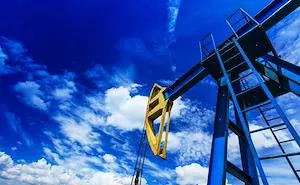Nueva ley sobre exploración de petróleo no autorizada en las Islas Malvinas

El gobierno argentino está tomando ciertas medidas tendientes a detener la exploración de petróleo que se está llevando a cabo sin su autorización en las proximidades de las Islas Malvinas, en un área considerada por el gobierno argentino como perteneciente a la Zona de Exclusividad Económica argentina (200 millas náuticas desde la línea de la costa o el limite exterior de la plataforma continental, la que sea mayor).
El Congreso de la Nación aprobó un proyecto de ley que sanciona a las compañías que directa o indirectamente, desarrollan o asisten a otras compañías en actividades de exploración de petróleo en la plataforma continental argentina cuando dichas actividades no han sido autorizadas por el gobierno argentino (“Actividades No Autorizadas”).
1. Principales disposiciones de la Ley
Conforme a la Ley, las actividades de exploración y explotación petroleras en la plataforma continental argentina deben estar sujetas a la Ley y al resto de la legislación argentina aplicable.
Ninguna sociedad argentina o extranjera autorizada a operar en la Argentina, ni sus accionistas, podrá:
- realizar Actividades No Autorizadas;
- tener participación directa o indirecta en cualquier sociedad que esté realizando Actividades No Autorizadas o proveer cualquier servicios para la realización de dichas actividades; o
- realizar negocios con cualquier persona física o jurídica con el propósito de asistirlos para realizar Actividades No Autorizadas.
Las personas físicas o jurídicas que violen las prohibiciones mencionadas serán “inhabilitadas” por un plazo de 5 a 20 años, sin perjuicio de las sanciones penales que pudieren corresponder. Si dichos sujetos ostentaran concesiones petroleras, estas revertirán en favor del Estado. Asimismo, cualquier exención o facilidad relacionada con impuestos y cargas sociales de la que gocen estos sujetos será revocada.
Ninguna autoridad nacional, provincial o municipal podrá celebrar contratos con sociedades que, directa o indirectamente realicen Actividades No Autorizadas, ni con sus accionistas.
El gobierno argentino publicará un listado de aquellas sociedades argentinas y extranjeras que realicen Actividades No Autorizadas.
2. Status actual de la Ley
Hasta que el Poder Ejecutivo Nacional no la promulgue y no sea publicada en el Boletín Oficial, la Ley no entrará en vigencia. La Ley se podrá considerar promulgada por el Poder Ejecutivo cuando transcurran diez días hábiles desde su recepción por el Poder Ejecutivo, si no es vetada en ese plazo.
De conformidad a la información suministrada en el Congreso Nacional la Ley será enviada al Poder Ejecutivo en el transcurso de la corriente semana.
El Poder Ejecutivo podría vetar la Ley, pero esta alternativa no parece probable dado el apoyo político que tiene la Ley. De todas formas, en caso de veto, el proyecto debería ser aprobado nuevamente por dos tercios de ambas Cámaras del Congreso para ser promulgada.
3. Entrada en vigencia de la Ley
Luego de ser promulgada por el Poder ejecutivo, la Ley deberá ser publicada en el Boletín Oficial.
La Ley entrará en vigencia a los 90 días de la fecha de su publicación en el Boletín Oficial. Por lo tanto, si la Ley se publicara en el Boletín Oficial, por ejemplo, el 15 de abril de 2011, entraría en vigencia el 14 de julio de 2011.
La reglamentación de la Ley debe ser dictada por el Poder Ejecutivo en el plazo de 60 días desde su publicación en el Boletín Oficial. Sin embargo, aun si el Poder Ejecutivo no emitiera la reglamentación de la Ley en el plazo de 60 días, de conformidad con la jurisprudencia de la Corte Suprema de Justicia de la Nación, esa omisión no será suficiente para interpretar que la Ley no ha entrado en vigencia y no es operativa al vencimiento del plazo de 90 días desde su publicación.
Bajo el principio constitucional de irretroactividad de las normas sancionatorias, cualquier actividad prohibida por la Ley que se haya desarrollado y haya cesado antes de la entrada en vigencia de la Ley, no debería constituir un incumplimiento y, por lo tanto, no debería razonablemente estar sujeta a las sanciones previstas en la Ley.
Es de esperar que la reglamentación de la Ley clarifique el concepto de “participación indirecta”, a fin de evitar que, de lo contrario, la Ley tenga un alcance “universal” dada la globalización del mundo actual. También es de esperar que la reglamentación de la Ley clarifique el significado de la sanción de “inhabilitación”.
Este insight es un comentario breve sobre novedades legales en Argentina; no pretende ser un análisis exhaustivo ni brindar asesoramiento legal.